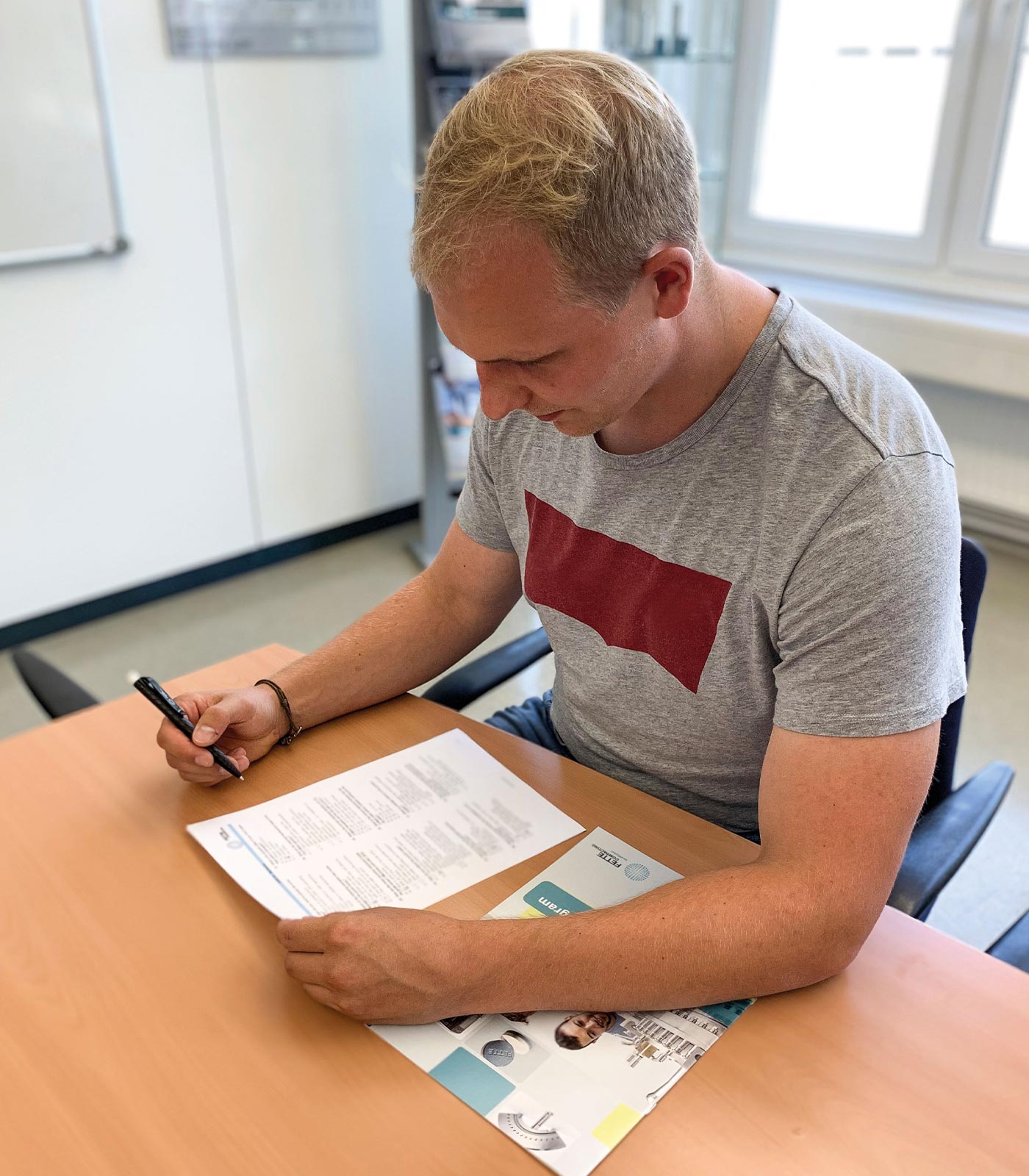
A high-quality tablet press is distinguished by its ability to make precise adjustments. This allows the optimum result to be achieved when manufacturing demanding pharmaceutical products. Well-trained personnel are required to fully exploit this potential. “A Fette Compacting tablet press has over one hundred production parameters. But what good is that if only twenty of these are used effectively?” asks Tim Klingenhof, Head of Training at Fette Compacting.
Getting staff experienced in pharmaceutical production to teach new employees has the benefit that every new person receives individual training as soon as they join the company. But this also bears the risk that, besides the valuable experience, knowledge gaps and misconceptions are also passed on.
Not just for new employees
To support pharmaceutical manufacturers, Fette Compacting offers skill-based training courses, which identify and specifically address these kinds of knowledge gaps that are often passed down from employee to employee. A multiple-choice test initially determines the relevant knowledge in the areas of mechanics, electronics, and operation. The result shows the knowledge gaps that exist for individual employees as well as whether the entire team lacks certain competences.
The questions in the test vary in their degree of difficulty. Particularly easy and general questions should be able to be answered by all, while only a few people in a team need to be familiar with the difficult and specific contents. “What is inconvenient is if no one can answer a question. In this case, it is clear that there is some catching up to do,” explains Klingenhof.
The skill-based training is not just intended for new personnel. It can also be used as supplementary training or as a refresher, where it provides a good opportunity to increase the overall efficiency of production, or to provide specific operational training when switching to a new machine. Rather than having to work through a complete training course in an area, the multiple-choice test can be used to compile a customized program with the critical contents. This reduces the length of the training and ensures that topics in which people already feel comfortable are not repeated. Another benefit is that employees do not need to spend an unnecessary amount of time out of the production area for the training.

Higher production speed after targeted training sessions
The case of a medium-sized pharmaceutical manufacturer demonstrates the success of the skill-based training approach: the manufacturer recruited several individuals at the same time, who had previously had little experience in the pharmaceutical industry. This quickly led to lower tablet quality, higher product loss, and slower production.
To counter this, the manufacturer decided to provide direct training for the entire workforce. The results of the multiple-choice tests were used to pair up employees depending on the knowledge gaps and language skills. In total, Fette Compacting held seven individually designed tandem training sessions in German and English. This approach had the added benefit that only two people were ever missing from the production area at any one time. “Measurements confirm that the product quality and product loss were able to be returned to the original values after the skill-based training sessions. What’s more, after the training sessions, the speed of production increased beyond the values recorded before the new appointments,” reports Klingenhof.





